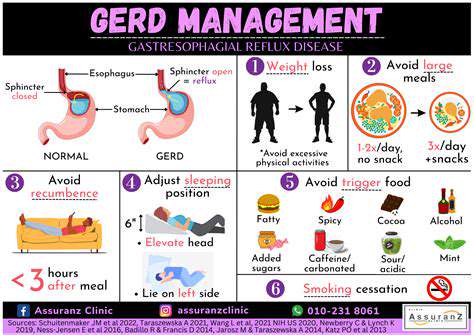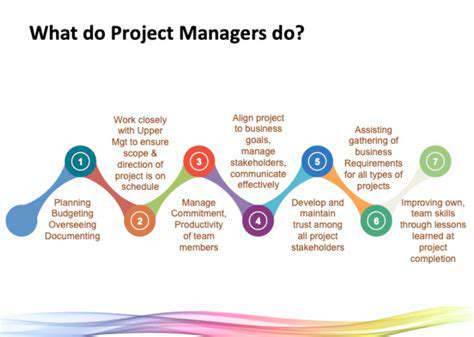Exploring the Relationship Between GERD and Anxiety

Gastroesophageal Reflux Disease (GERD) and Anxiety
Gastroesophageal reflux disease (GERD) is a chronic condition characterized by frequent acid reflux, which can significantly impact mental well-being. The persistent discomfort and pain associated with GERD can lead to increased anxiety and stress. This is especially true for individuals who experience frequent or severe symptoms, impacting their daily lives and relationships. The constant worry about the next episode of heartburn or indigestion can create a cycle of anxiety and stress, making it difficult to manage the condition effectively.
The physiological effects of GERD can also contribute to anxiety. The inflammation and irritation caused by acid reflux can lead to a host of physical symptoms, further compounding psychological distress. These symptoms can range from a burning sensation in the chest to difficulty swallowing, and can significantly affect sleep quality. Poor sleep, in turn, can worsen anxiety and mood disturbances.
GERD and Depression
The link between GERD and depression is increasingly recognized by medical professionals. The chronic nature of GERD and the persistent physical discomfort can contribute to feelings of hopelessness and despair, potentially triggering or exacerbating depressive symptoms. The physical symptoms, such as chest pain, bloating, and heartburn, can interfere with daily activities, leading to social isolation and further feelings of sadness.
Furthermore, the ongoing stress of managing GERD can lead to a vicious cycle of physical and emotional distress. This cycle can be difficult to break, often requiring a multi-faceted approach to treatment that addresses both the physical and emotional aspects of the condition.
GERD and Irritable Bowel Syndrome (IBS)
GERD can sometimes coexist with Irritable Bowel Syndrome (IBS), adding another layer of complexity to the patient's experience. The overlapping symptoms between the two conditions can make diagnosis challenging. Symptoms such as abdominal pain, bloating, and changes in bowel habits are common to both, potentially leading to misdiagnosis or delayed treatment.
The Role of Diet and Lifestyle in Mental Well-being
Diet and lifestyle choices play a significant role in managing both GERD and its associated mental health issues. Maintaining a balanced diet that minimizes trigger foods, such as fatty and spicy foods, can significantly reduce GERD symptoms. Regular exercise, stress-reduction techniques, and adequate sleep are also crucial for overall well-being and mitigating the impact of GERD on mental health.
Impact on Relationships and Social Life
The chronic pain and discomfort associated with GERD can significantly impact relationships and social life. The frequent episodes of heartburn and indigestion can disrupt social activities and create tension in personal relationships. Individuals experiencing these symptoms may withdraw from social situations, leading to feelings of isolation and loneliness. This can create a vicious cycle, making it difficult for those affected to maintain positive relationships.
Treatment Approaches for Addressing Both Physical and Mental Health
Effective treatment for GERD often involves a multifaceted approach that considers both the physical and mental health aspects of the condition. This may include medication, dietary changes, lifestyle modifications, and therapy. Mental health professionals can provide support and coping strategies to help individuals manage the emotional distress associated with GERD. Support groups and educational resources can also provide invaluable assistance in navigating the challenges of living with this chronic condition.
Effective Management Strategies: Addressing Both GERD and Anxiety

Defining Effective Management
Effective management hinges on a multitude of interconnected skills and strategies. It's not simply about overseeing tasks, but about fostering a productive and positive work environment. This involves understanding individual and team needs, setting clear expectations, and providing the necessary resources and support to achieve organizational goals.
Strategic Planning and Goal Setting
A crucial aspect of effective management is strategic planning. This involves analyzing the current situation, identifying opportunities and threats, and developing a roadmap to achieve long-term objectives. Strategic planning should be a collaborative process, incorporating input from all relevant stakeholders to ensure buy-in and alignment.
Clearly defined goals are essential for guiding actions and measuring progress. These goals should be specific, measurable, achievable, relevant, and time-bound (SMART). This clarity ensures everyone understands their contribution to the overall mission.
Team Building and Collaboration
Building strong teams is paramount for success. Effective managers foster a collaborative environment where team members feel valued, respected, and empowered to contribute their best work. This includes promoting open communication, encouraging teamwork, and resolving conflicts constructively.
Creating a positive work atmosphere where individuals feel comfortable sharing ideas and collaborating is key to achieving peak performance. This environment fosters innovation and allows for the collective intelligence of the team to be harnessed.
Delegation and Empowerment
Delegating tasks effectively is a vital management skill. Identifying the right individuals for specific tasks, providing clear instructions, and granting them the necessary autonomy is essential for maximizing productivity and developing employees' skills. This process should be accompanied by regular feedback and support to ensure success.
Performance Management and Feedback
Regular performance reviews are critical for providing constructive feedback, identifying areas for improvement, and recognizing achievements. This process should be transparent and focused on continuous development, rather than just evaluating past performance. Providing timely and specific feedback is a powerful tool for improving performance and motivating employees.
Resource Allocation and Control
Effective resource allocation is essential for achieving organizational objectives. This includes managing budgets, allocating personnel, and utilizing technology efficiently. Careful monitoring of resources, coupled with a keen understanding of their impact, ensures that investments are yielding the desired results. Wise resource management ensures that the organization's assets are used effectively and sustainably.